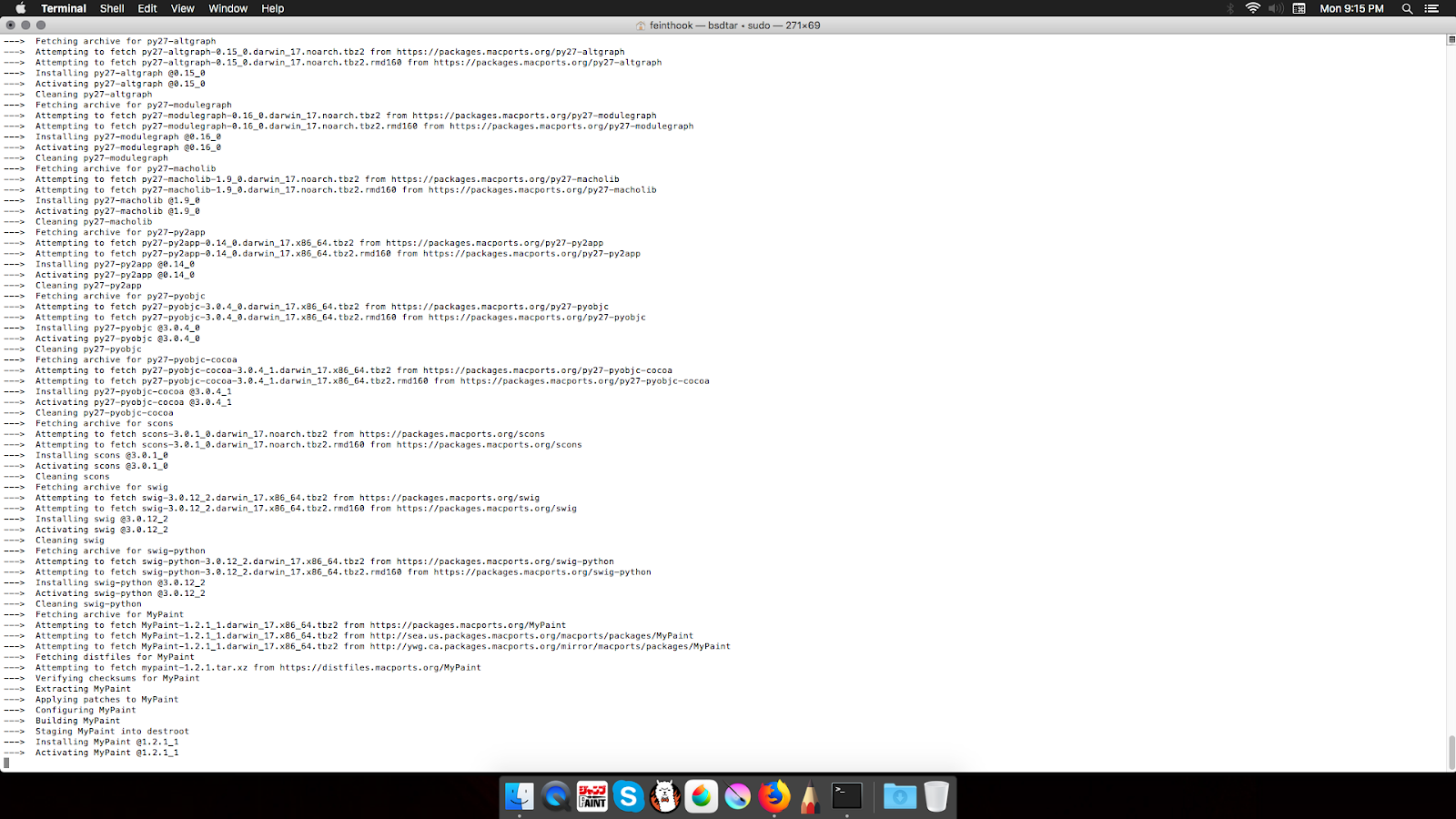
- #MACPORTS JULIA INSTALL INSTALL#
- #MACPORTS JULIA INSTALL FULL#
- #MACPORTS JULIA INSTALL PORTABLE#
- #MACPORTS JULIA INSTALL SOFTWARE#
#MACPORTS JULIA INSTALL SOFTWARE#
As a small example, the Palapeli jigsaw-puzzle game in the kdegames4 port has an option to create puzzles from the user's own pictures, but the option will not work until kbuildsycoca4 has run and recorded Palapeli's slicer modules in the KDE software cache.Īs described in the "Major layout issues on macOS" section of the KDE problems wiki page it is necessary to avoid the Typically, some components of a large application might not be found at run time, so the application will fail to start properly or will have missing functionality.

If the command is not issued periodically (either automatically through the script above or manually), applications may run erratically. The recommended way is to use the following command to automate its use, after installation of kdelibs4 by MacPorts: In Linux and UNIX, this command is automatically run periodically, but this is not the case on macOS. Kbuildsycoca Kbuildsycoca4 is a command that refreshes the cache of the KDE software, which is required for many applications to work properly. If this command is not issued, KDE applications will crash without warning. It is required to ensure that dbus is running by issuing the following command after installation by MacPorts:
#MACPORTS JULIA INSTALL INSTALL#
You do not need to repeat them when you install more KDE software ports, but it does no harm.ĭbus Dbus is a messaging system between applications, which is mandatory for KDE applications. You need to do them after you first install or re-install KDE software ports. Without these steps KDE software ports will not work. There are some small steps which need to be performed by the user, which are listed below. The second command filters out the ports for translations of KDE applications into languages other than English. Port echo categories:kde4|grep -v 'kde-i18n-'|grep -v 'kde-l10n-'
#MACPORTS JULIA INSTALL FULL#
It is also possible to get a full list by issuing one of the commands KDE 3 became obsolescent in 2008 and is no longer supported, so KDE 3 ports should be avoided as far as possible.Ī list of the available ports is provided below. Several ports end however with a "4", or start with "kde4-" in order to differentiate the ports from the ones of the older KDE version 3. The ports contained in MacPorts essentially match the packages provided on KDE mirrors. It may be helpful to break the work into stages: first qt4-mac, then kdelibs4 and kde4-runtime and finally the KDE applications you require. Please note that several large packages are pre-requisites of KDE software, so the installation or re-installation may take a few hours at first, but less time for subsequent KDE applications. KDE software dependencies are handled by MacPorts and should be installed automatically. IMPORTANT NOTE: The user needs to perform some additional steps after installation (see below). KDE application ports can be installed with MacPorts in the same way as other ports, such as here for the kdelibs4 port: Installing KDE applications with MacPorts Please provide feedback to the macports-users mailing list of your experiences, both good and bad. Some unexpected behaviours and glitches should be expected. Many packages will work if you follow the instructions below, but some software from KDE is not designed to work on this platform. However, KDE is primarily developed on Linux and UNIX systems. On macOS, Qt uses the macOS (Cocoa) widgets and window style, which means that KDE and Qt applications look and feel like other macOS applications.
#MACPORTS JULIA INSTALL PORTABLE#
KDE also produces a range of applications, system programs, tools and utilities, many of which will run on macOS or Windows, because they are based on the Qt framework, a set of C++ libraries and tools that is portable to several operating systems and hardware types. Its central product is the Plasma desktop equivalent to Apple macOS or Microsoft Windows, but running on Linux and UNIX-based operating systems. KDE is a world-wide community of hundreds of programmers producing Free Open Source Software (FOSS).





 0 kommentar(er)
0 kommentar(er)
